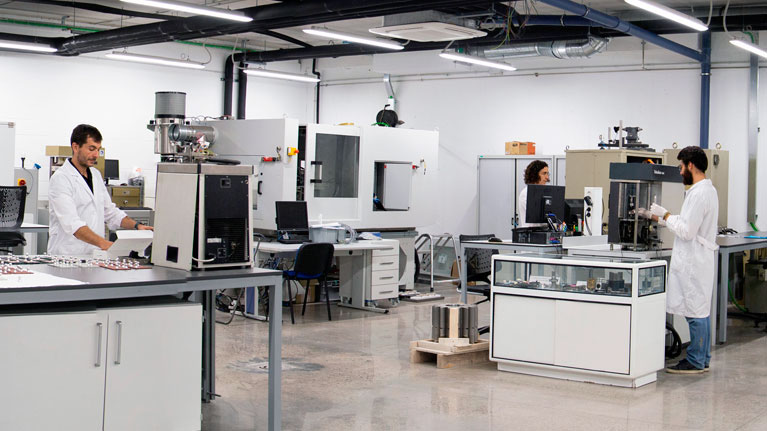New decontamination alternatives for persistent and toxic chemical compounds
Tekniker is coordinating the European triboREMEDY project to develop an alternative to the incineration process, used nowadays for toxic organic waste, that is efficient and innocuous in terms of our health and the environment.

Persistent Organic Pollutants (POPs) are chemical substances that pose a serious threat for our health and the environment in our planet due to their toxicity, their potential for long-range transport, persistance in the environment and, above all, their ability to and bioaccumulate after penetrating tissues in living beings.Persistent Organic Pollutants (POPs) are chemical substances that pose a serious threat for our health and the environment in our planet due to their toxicity, their potential for long-range transport, persistance in the environment and, above all, their ability to and bioaccumulate after penetrating tissues in living beings.
In fact, and according to the World Health Organization (WHO), exposure to POPs, even at low concentrations, can increase the risk of suffering from cancer, congenital diseases or even cause fertility problems. Nowadays, and despite the production of these compounds has been banned, eliminating the large amounts of persistent organic pollutants generated until now it is still a major issue.
Although incineration is what is most frequently used method nowadays to decompose certain POP compounds, if the procedures used are incorrect, there is a risk of producing dioxins that are extremely detrimental to health.
It is in this context that Tekniker, member of the Basque Research and Technology Alliance (BRTA), is coordinating a European project called triboREMEDY to develop new technologies capable of decomposing these compounds which are highly toxic for our health and the environment.
To achieve this goal, the technology centre is resorting to its extensive experience in the field of tribology, a multi-disciplinary science that studies interacting surfaces in relative motion. The main focus is to develop a radically new technology which, by means of tribochemical reactions, will make it possible to decompose a number of harmful organic compounds. This new technique, known as tribolysis, is currently proposed as an alternative to degrade dangerous POP chemical products in a safe, efficient, and controlled manner.
A technology to protect our health and the environment
More specifically, Tekniker is working on developing a technique that, by using mechanical energy, generates chemical reactions that can transform persistent organic compounds into innocuous by-products. In this regard, and thanks to its expertise, Tekniker is currently working to design, set up of a processor prototype able a to chemically decompose POPs by means of advanced tribolysis techniques and eliminate their toxicity whilst avoiding the risk of emitting highly noxious by-products into the environment.
Within the framework of the triboREMEDY project, and in addition to POPs processing, a second and completely different goal has been set to investigate an alternative to the water disinfection processes currently in use. This second line of project research and development in which Tekniker is also playing an important role, is centred on using a number of basic principles related to tribology and fluid dynamics to inactivate microorganisms such as bacteria and viruses found in different types of water to reduce the use of chemical compounds such as chlorine or sodium hypochlorite in drinking water, swimming pools, etc. when disinfecting.
In this project, in which other renowned European partners are also involved, Tekniker is in charge of verifying through experimentation the theoretical basis the project is based on to investigate materials, chemical reagents and operating criteria that may influence tribolysis mechanisms.
In the long run, this initiative that kicked off in March last year and will end in February 2023, intends to establish tribolysis as a basis for what is to become an indispensable environmental decontamination and remediation technology to eliminate hazardous chemical waste and treat water.
